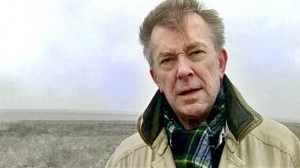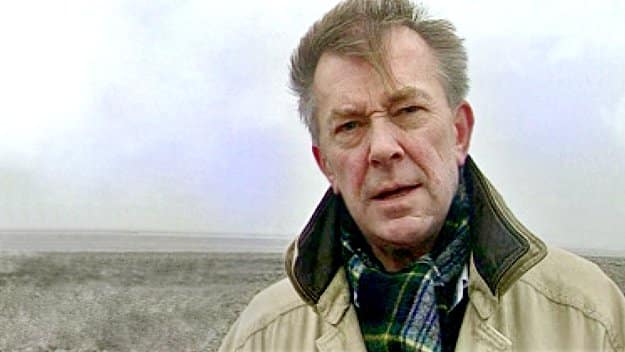BBC presenter Ray Gosling killed his friend with AIDS in the 1980s - at his request. Now England is discussing euthanasia
 As spring slowly makes its way across Europe, an old man sits in a care home in Robin Hood's native Nottingham, waiting for the English public to agree on whether he is a murderer or a hero: Ray Gosling.
As spring slowly makes its way across Europe, an old man sits in a care home in Robin Hood's native Nottingham, waiting for the English public to agree on whether he is a murderer or a hero: Ray Gosling.
The well-known former BBC television presenter made a confession in a prime-time TV documentary on 16 February: He had killed a man in the early 1980s after the man had asked him to.
"He was a young bloke. He was my lover. And he had Aids," Gosling tells the TV crew as he walks through a cemetery. "The doctors said there was nothing more they could do for him. And he was in terrible pain. I asked the doctor treating him: 'Leave us alone for a few minutes'. He left the room. I then took a pillow and suffocated him. When the doctor came back, I simply said: 'He's just died'. Nothing more was ever said."
The authorities were informed during the broadcast, Gosling was arrested on the morning of 17 February and released on 18 February pending the opening of the trial. After lengthy interrogation, Gosling revealed the identity of his friend. "Otherwise I would still be in a cell today," he says. And he continues to emphasise that he and the man he killed had agreed to kill each other if he became terminally ill with the consequences of AIDS and was no longer able to do so himself.
Although UK legislation considers killing on demand to be a criminal offence punishable by a suspended sentence as a minimum, it does provide for exceptions in cases involving family members. It is doubtful whether these can be applied here.
Gosling's case was accompanied by a media tsunami; every tabloid newspaper in the British Isles had hardly any other topic for days. Gosling became a symbolic figure for the question of whether people should be allowed to help other people to die.
The debate is being conducted by politicians, church representatives and lawyers in the media and by a much broader public on the internet. There are two dozen groups on Facebook alone, with several thousand members on the subject. They are called "I support Ray Gosling", "Free Ray Gosling, legalise Euthanasia" or "Stop harassing Ray Gosling", but also "Ray Gosling is either insane, a pathological liar or a murderer".
In addition to the well-known basic views on the subject of euthanasia - the free will of man versus God's omnipotence to give and take life - there are highly interesting and very differentiated debates between HIV-positive people. "I find it disturbing that this group exists and, as an HIV-positive man, I say very clearly: I don't want to be suffocated with a pillow," writes a 33-year-old from London, to which a 55-year-old "Charles" replies: "You weren't there, not in the mid-80s, and certainly not in Ray Gosling's friend's hospital room. For me, he's a hero who had the courage to do something I was too cowardly to do back then."
Older people argue in favour of euthanasia more often than younger people in this debate: "We need a change in the law," writes 70-year-old Constanze. "I don't want my children to have to travel to Switzerland or the Netherlands to collect my body if I decide to go down this route. Ray Gosling, you have my full support."
The police have until mid-April to finalise their investigation and it is still unclear whether charges will be brought. The British public is largely behind Gosling. "I have no idea what's happening to me," Gosling told the Nottingham Evening Post, "but I have sore shoulders from all the hugs people have given me in the street. And that's a good feeling." Paul Schulz
Photo: Channel 4










